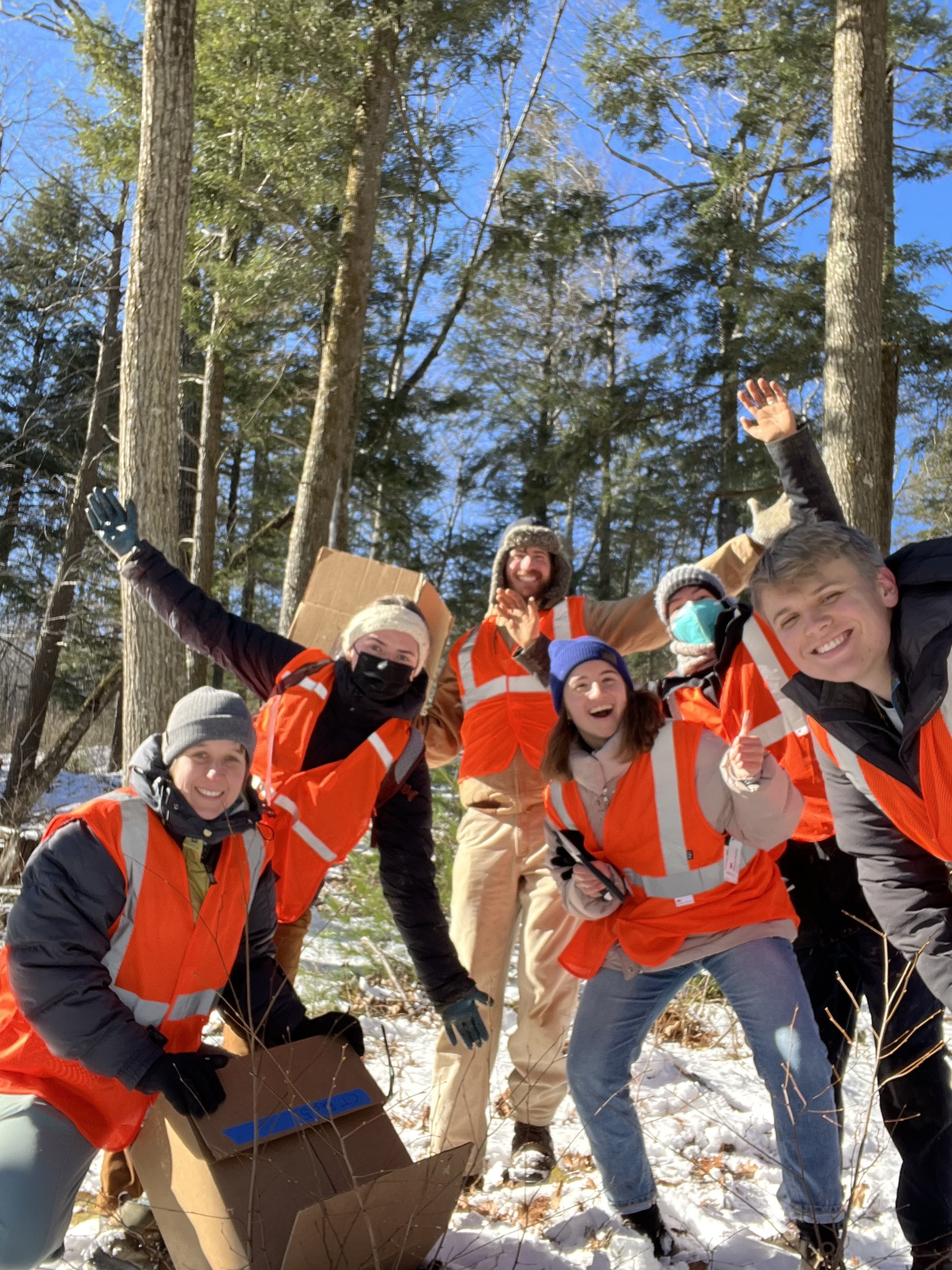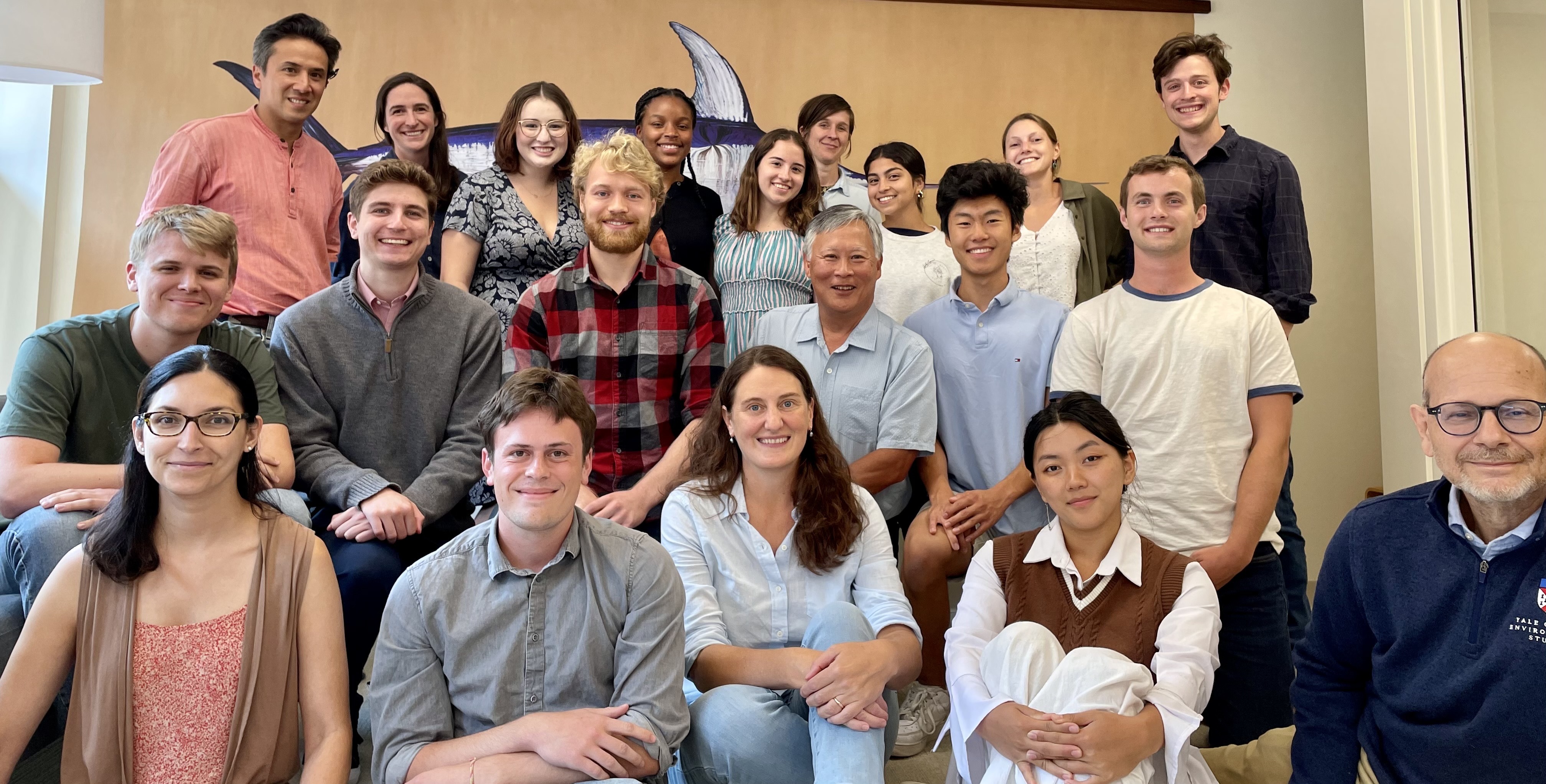The CC Lab is Hiring!
Help our team scale novel and neglected solutions to climate change.
Position description:
The Carbon Containment Lab (CC Lab) is hiring Student Research Assistants for fall 2024, to contribute to the Lab’s mission of developing innovative approaches to carbon reduction and containment. Student Research Assistants will support a range of different programs and projects aiming to advance the implementation of natural and engineered climate solutions. Our application portal is also always open, and we are happy to hold your application for future cycles in case you do not have availability in the fall semester.
Start and end dates are subject to change and may be flexible depending on the Research Assistant’s needs and/or their assigned project. For certain projects, there may be opportunities to begin part-time before the end of the summer.
We will be reviewing applications on a rolling basis. We have now completed most hiring for summer 2024, but may consider additional applicants. We value diversity, equity, inclusion, accessibility, and belonging in our workplace and encourage students from underrepresented backgrounds to apply.

Responsibilities may include:
Designing and executing research or project planning and implementation work relevant to the CC Lab’s projects.
Collaborating with stakeholders, investors, policymakers, and decision-makers to understand their objectives and challenges in implementing carbon containment initiatives.
Interviewing subject matter experts and practitioners.
Finding and processing existing datasets to extract and analyze relevant data with a variety of methods including statistical and spatial analysis.
Generating primary data where none exists, for example through online research, interviews, surveys, lab bench trials, and field site data gathering.
Conducting quality assurance checks and due diligence.
Organizing files, contacts, research, data, and other relevant information for projects following CC Lab protocols and systems.
Preparing and presenting research outputs in various formats including briefs, reports, and presentations.
Keeping track of action items and next steps to advance projects.
Participating in CC Lab team meetings, brainstorming sessions, project planning processes, fieldwork, and administrative tasks as needed.
For certain projects: assisting with laboratory research and experiments.
Possible research areas:
Existing and emerging negative emissions technologies.
Legal, political, and regulatory issues associated with negative emissions technologies or their environmental and socio-economic impacts.
CC Lab systems of interest: geologic carbon storage; industrial point source carbon capture; direct air carbon capture; enhanced mineral weathering; carbon sourcing and delivery; forest management and wildfire risk mitigation; bioenergy systems; and short-lived climate pollutants.
High-Global Warming Potential gas destruction or abatement.
Carbon markets and carbon finance.
New projects in the CC Lab's pipeline.
Required qualifications:
Desire to tackle the challenge of climate change with innovative and interdisciplinary approaches.
Demonstrated interest in areas including: climate change mitigation and adaption, carbon removal/reduction, environmental policy/science, clean energy and technology.
Flexible, creative thinker able to investigate, interpret and communicate data, science, and trends across several fields related to the CC Lab’s work.
Proactive self-starter, resourceful, detail-oriented, with the ability to multi-task, learn quickly, stay organized, and work in a fast-paced environment.
Excellent interpersonal and teamwork skills, as well as written and verbal communication skills.
Strong analytical and quantitative skills, demonstrated through a record of coursework and professional experience. Experience in finding and analyzing qualitative and quantitative data with a range of methods.
Experience in conducting far-ranging research and academic literature reviews.
Familiarity with MS Office Suite, Dropbox, Zoom, and willingness to learn statistical and geospatial analysis software.
Preferred experience:
Experience working with carbon capture, utilization, and storage technologies, experience working on environmental policy/science research or environmental engineering projects.
Coursework in economics, mathematics, earth sciences, geology/geophysics, chemistry, physics, statistics and data science, computer science, materials science, environmental/mechanical/chemical/systems engineering, environmental management, environmental policy, environmental justice, social impact assessment, communications, and legal fields.
Familiarity with spatial analysis tools (such as QGIS, ArcGIS, Google Earth Engine), data processing/statistical analysis tools (such as R, Python, STATA), or data visualization tools.
Experience conducting life cycle assessments or environmental impact studies.
Experience in entrepreneurship, consulting, or with working on multiple projects simultaneously.
Experience in crafting communications materials in nonprofit or corporate settings.
For certain projects: Masters/MBA or PhD students in Economics, at the School of Management, or at the School of the Environment.
For certain projects: Masters or PhD students in chemistry, environmental or chemical engineering, earth sciences.
For certain projects: experience with laboratory work and/or analytical chemistry.
For certain projects: interest in aquatic chemistry, water treatment, and/or air pollution control.
Submit an application here: https://forms.gle/ieBFbDmutC8umxj99
Feel free to reach out to Russ (russell.grandin@cclab.org) with any questions.
About the Lab:
The Carbon Containment Lab (CC Lab) is a nonprofit that teaches and conducts research, as well as develops and implements low-cost, safe, and scalable approaches to carbon removal and containment. The CC Lab works with academic advisors, technical experts, and other collaborators to pursue concrete quantitative goals: 30 million metric tons of carbon dioxide equivalent (tCO2e) contained by 2030, and 500 million tCO2e by 2050. The Lab helps pioneer novel technologies, performs bench-scale and field-scale pilot tests, and assists and supports entrepreneurs and other innovators. As a non-profit, the CC Lab is funded entirely by individual gifts and grants.
